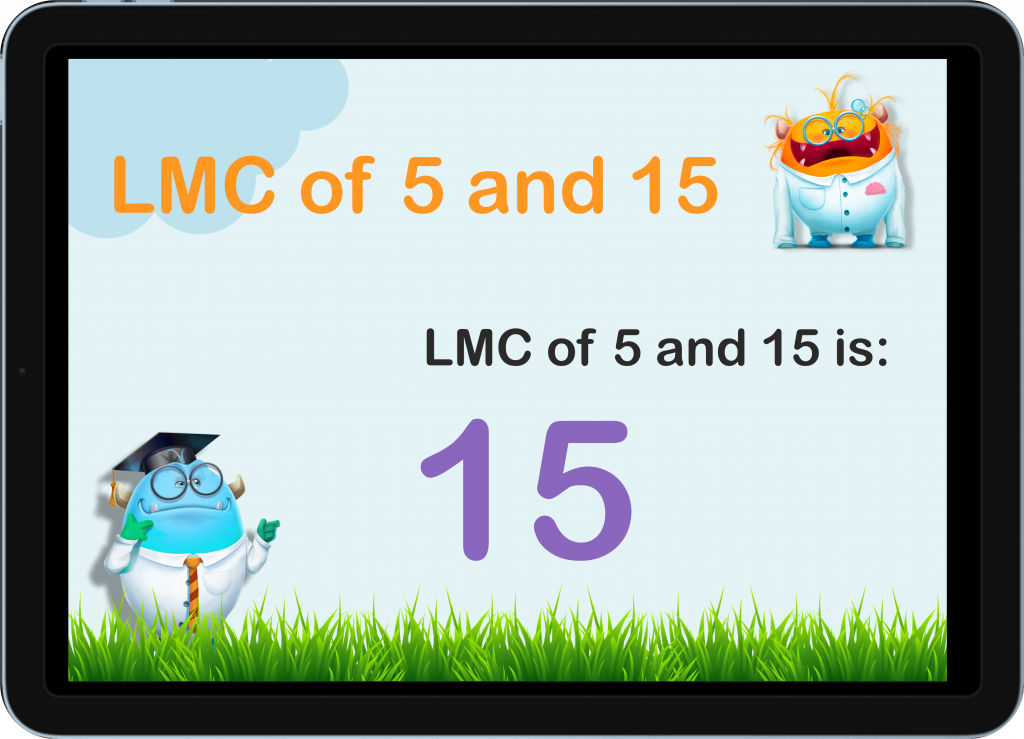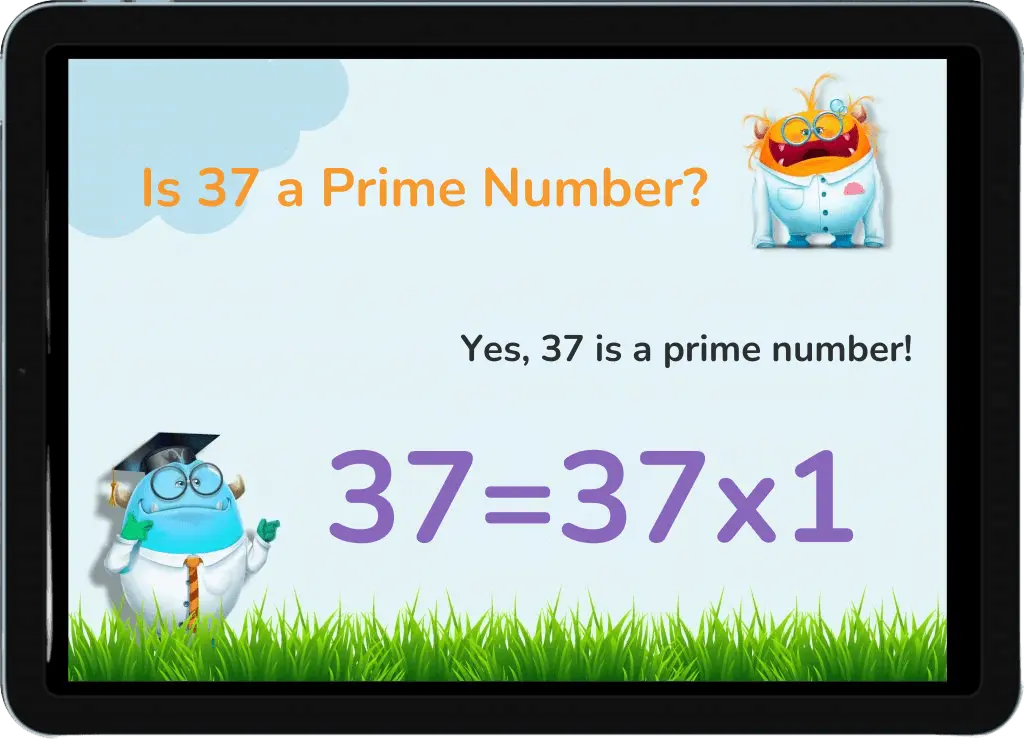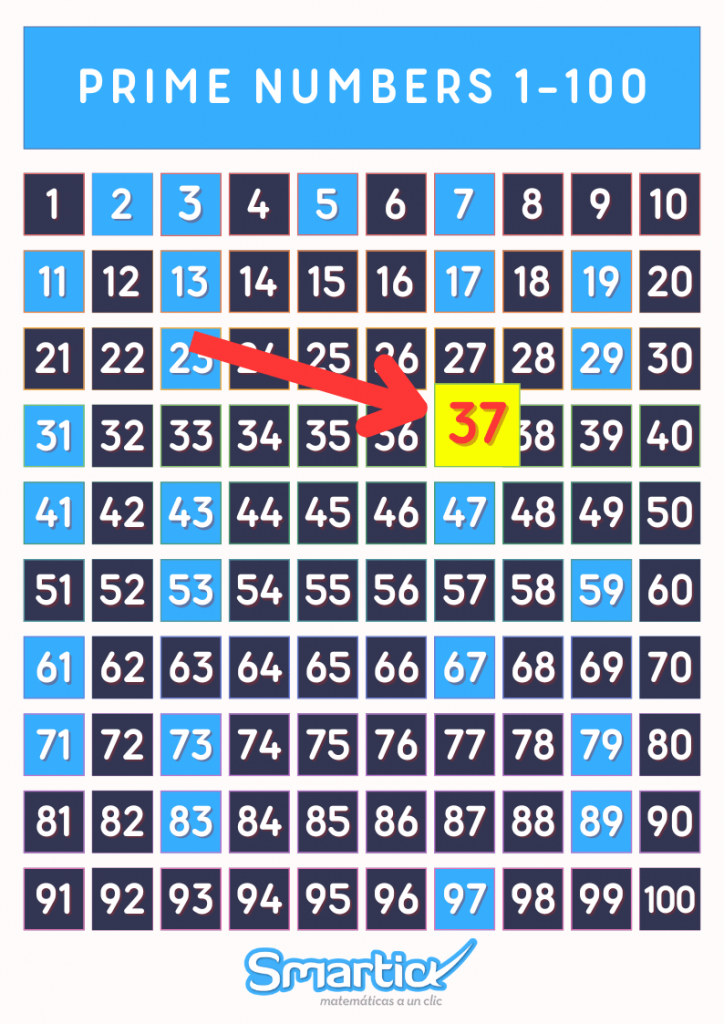Is 2 A Prime Number?
Prime vs. Composite Numbers
Greetings, young math enthusiasts! Today, let’s set sail on a mathematical voyage to determine if 2 is a prime number, and learn more about the difference between prime and composite numbers.

Is 37 a Prime Number?
Or Is 37 a Composite Number?
Math doesn’t have to be boring! It can be fun, engaging, and entertaining. Let’s prove it to you with a crazy subject: determining if 37 is a prime number. Hop on!


No credit card required

No credit card required
Understanding Prime Numbers
Why is 37 a Prime Number?
Mathematical Properties of 37
Prime Factorization and Related Concepts
Is 37 a Composite Number?
Fun Facts and Trivia about 37
Applications of Prime Number 37
Hey there, number ninjas! Ready to discover ins and outs of prime number 37? We bet you are! Get your thinking caps on, and let’s dive into the wonderful world of prime and composite numbers!
Understanding Prime Numbers
First, let’s get serious for a moment and define what a prime number is.
A prime number is a natural number greater than 1 that has exactly two factors: 1 and the number itself. This means a prime number can only be divided evenly by 1 and the number itself without leaving a remainder. Examples of prime numbers include 2, 3, 5, 7, 11, and, as we’ll see, 37.
Now that we’ve got the definition down, let’s get back to having fun with 37!
Why is 37 a Prime Number?
You might be wondering, why is 37 a prime number? Great question! To figure this out, we need to check if 37 can be divided evenly by any numbers other than 1 and 37. Let’s break it down step-by-step.
- Is 37 greater than 1? Absolutely! It’s way bigger than 1.
- Can 37 be divided evenly by any numbers between 1 and 37? Nope! 37 can only be divided by 1 and 37.
So, 37 passes the test! It can only be divided by 1 and 37, making it a prime number. Simple, right?
Mathematical Properties of 37

Let’s dive into the unique and fascinating properties of the number 37. First off, 37 is part of the sequence of prime numbers, nestled between 31 and 41. This means 37 is one of those special numbers that stands out among the rest.
Another cool fact is that 37 is the smallest prime that is not a member of a twin prime pair. Twin primes are pairs of primes that are just two units apart, like (11, 13) and (17, 19). But 37 stands alone, adding to its mystique.
Also, when we look at the properties of 37 in base-10, it’s one of the prime numbers that, when reversed (73), is also prime! This makes 37 and 73 a pair of emirp primes (yes, “prime” spelled backward), which are primes that remain prime when their digits are reversed. How awesome is that?
In addition, 37 is part of a unique set called the “Cuban primes.” These are primes of the form (x³ – y³) / (x – y) for x = y + 1. In simpler terms, they are derived from the differences of cubes of successive integers. This special property is another feather in 37’s cap!
And let’s not forget its connection to magic squares. In a 3×3 magic square, where the sums of the numbers in each row, column, and diagonal are the same, 37 can often be found at the center, adding a touch of numerical harmony.
Prime Factorization and Related Concepts
Prime factorization is like giving a number its secret identity. For the number 37, the prime factorization is straightforward:
Prime factorization of 37: 37
Since 37 is a prime number, it cannot be broken down into other prime factors. It’s a unique and special number, standing alone as its own prime factor.
Is 37 a Composite Number?
Now, let’s tackle another important question: Is 37 a composite number? The answer is no. A composite number has more than two divisors, meaning it can be divided evenly by numbers other than just 1 and itself. For instance, 36 is a composite number because it can be divided by 1, 2, 3, 4, 6, 9, 12, 18, and 36.
However, 37 can only be divided by 1 and 37, making it a prime number, not a composite number. Game over for composite aspirations!
Fun Facts and Trivia about 37
Now, let’s have some fun with the number 37! Here are some cool and quirky facts about this prime number:
1. Lucky Number
In some cultures, 37 is considered a lucky number. It’s often seen as a number that brings good fortune and success.
In Italian culture, 37 is associated with prosperity and happiness. In Japanese culture, the combination of 3 and 7 amplifies luck, blending growth and good fortune. Meanwhile, in Chinese culture, 37 embodies positive, life-affirming energy due to the auspicious meanings of its digits. Together, these cultural beliefs highlight 37 as a number that brings good fortune and success across different parts of the world.
2. Unique Digit Properties
The digits in 37 (3 and 7) are both prime numbers themselves. How cool is that? This means that not only is 37 a prime number, but its individual digits also belong to the exclusive club of prime numbers. It’s like a prime number trifecta, making 37 even more special and unique in the world of mathematics.
3. Math Magic
If you multiply 37 by 3, you get 111. And if you multiply 37 by 6, you get 222. This pattern continues, making 37 a bit of a math magician! It’s like 37 has a secret formula for creating repeating digits. This quirky characteristic fascinates mathematicians and adds to the charm of the number 37.
Applications of Prime Number 37
Prime numbers like 37 aren’t just cool to learn about—they’re also super useful! In fields like cryptography and computer science, prime numbers play a crucial role. Prime numbers are fundamental to encryption algorithms, which secure online communications.
For example, RSA encryption, one of the most widely used cryptographic systems, relies on the difficulty of factoring large numbers into their prime components. While 37 itself isn’t large enough to be used directly in modern encryption, the principles that make it a prime number are the same principles that protect your data online.
So, next time you’re browsing the internet, remember that the concept of primes like 37 is part of what keeps your information safe!
Conclusion
Congrats, mini math geniuses! You’ve navigated through the fascinating world of prime numbers and discovered why 37 is a prime number. Remember, a prime number is a natural number greater than 1 with exactly two factors: 1 and itself.
Keep exploring and uncovering more mathematical wonders. Who knows, maybe the next prime number you discover will be even more exciting than 37!
Learn More About Prime Numbers
© 2024 Smartick. All Rights Reserved.
